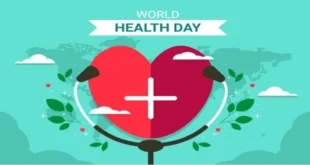Article Summary:
Health urgent care centers provide a crucial service for individuals seeking timely medical attention. They bridge the gap between primary care providers and emergency rooms, offering convenience and affordability. Urgent care is especially beneficial for non-life-threatening health issues that require immediate attention. These centers typically operate outside of regular office hours and cater to a variety of medical conditions. Understanding when to visit an urgent care center, the types of services they offer, and how they differ from emergency rooms can help patients make informed decisions about their healthcare needs.
Introduction to health urgent care
Health urgent care centers are becoming increasingly important for people seeking immediate medical attention without the long wait times or high costs of emergency rooms. Whether you’re dealing with a minor injury, an illness, or any non-life-threatening health issue, urgent care facilities offer a fast and effective solution. These centers are designed to serve as an alternative to traditional doctor’s offices and emergency rooms, providing a level of care that bridges the gap between the two. In this article, we will explore the benefits, services, and considerations related to health urgent care.
What is Health Urgent Care?
Health urgent care centers provide immediate, non-emergency healthcare services. They cater to patients with minor injuries, illnesses, and other urgent medical needs that do not require a visit to the emergency room. These centers are generally open after regular business hours, including evenings and weekends, providing flexibility for patients who need urgent medical attention outside of typical office hours.
Why Are Health Urgent Care Centers Important?
Urgent care centers play an essential role in reducing the pressure on emergency rooms, allowing hospitals to focus on more critical patients. They also offer quicker service and are more affordable than emergency room visits for non-emergency medical needs. The growth of urgent care centers is a response to the increasing demand for accessible and timely healthcare.
The Growth of Urgent Care Centers
In recent years, the number of health urgent care centers across the United States has surged. According to the Urgent Care Association, there are over 9,000 urgent care centers nationwide, a number expected to continue growing. This growth reflects the increasing demand for accessible, affordable healthcare that fits into people’s busy schedules.
Key Services Provided by Health Urgent Care Centers
Health urgent care centers provide a wide range of services, catering to various medical needs that require immediate attention. While these centers are not equipped for life-threatening emergencies, they can handle many common medical issues.
Treatment for Minor Injuries
Urgent care centers are equipped to treat a variety of minor injuries, such as sprains, strains, cuts, and fractures. These centers are capable of providing stitches, splints, and basic fracture care. For more severe injuries, urgent care staff will often stabilize the patient and refer them to a hospital emergency room.
Illnesses and Infections
Health urgent care centers treat a variety of common illnesses such as the flu, cold, fever, and infections. They are also capable of diagnosing and providing treatment for conditions like strep throat, urinary tract infections (UTIs), and ear infections.
Preventive Care
Many urgent care centers also offer preventive care, such as vaccinations. Whether you need a flu shot or a tetanus booster, these centers provide easy access to essential immunizations.
Diagnostics
Urgent care centers are often equipped with on-site diagnostic services, including X-rays, lab tests, and screenings. These services help doctors quickly identify the cause of your symptoms, enabling them to provide the correct treatment.
Physical Exams
Some urgent care centers offer physical exams for employment, sports, and school-related requirements. These exams can often be performed without a long wait or the need for an appointment.
Differences Between Health Urgent Care and Emergency Rooms
Health urgent care centers and emergency rooms (ERs) both provide immediate medical attention, but they serve different purposes and are equipped for different levels of care. Understanding the distinction between the two can help you make an informed decision about where to seek care.
Care Level
Emergency rooms are designed to handle life-threatening and severe medical conditions. This includes conditions such as heart attacks, strokes, severe trauma, and other critical emergencies. Urgent care centers, on the other hand, are best suited for non-life-threatening conditions that require immediate attention.
Wait Times
One of the primary differences between urgent care centers and emergency rooms is wait time. Emergency rooms are often crowded with patients requiring critical care, leading to longer wait times. In contrast, urgent care centers typically have shorter wait times, allowing patients to receive treatment more quickly.
Cost
The cost of visiting an urgent care center is generally much lower than going to an emergency room. For non-critical conditions, choosing urgent care can save you a significant amount of money. Emergency rooms can be expensive due to the higher level of care they provide, as well as the administrative costs involved in treating more complex cases.
Hours of Operation
Urgent care centers are typically open outside regular office hours, including evenings and weekends, making them more accessible for those who need urgent care during non-business hours. Emergency rooms are open 24/7, but the cost and wait times are generally higher during off-peak hours.
The Benefits of Choosing Health Urgent Care
Health urgent care centers offer several advantages for patients in need of immediate medical attention. Some of the most notable benefits include:
Fast and Convenient Service
Urgent care centers are designed to provide quick and efficient care. Most centers offer walk-in appointments, allowing you to receive care without the need for scheduling an appointment in advance.
Affordable Treatment
Urgent care is generally more affordable than visiting an emergency room, especially for non-emergency conditions. Many urgent care centers accept a wide range of insurance plans, and some even offer discounted rates for uninsured patients.
Professional Care from Qualified Medical Staff
While urgent care centers do not have the extensive resources of a hospital, they are staffed by highly trained physicians, nurse practitioners, and physician assistants who can provide high-quality care for a variety of conditions.
No Need for a Primary Care Physician
Urgent care centers offer the flexibility of receiving care without requiring a referral or prior appointment with a primary care physician. This is especially beneficial for people who do not have a regular doctor or those who need immediate attention outside normal office hours.
What to Expect During a Visit to Health Urgent Care
Visiting a health urgent care center is a straightforward process, but it’s helpful to know what to expect during your visit.
Registration and Triage
Upon arrival, you’ll be asked to provide basic information, such as your medical history and the symptoms you’re experiencing. A nurse or medical assistant may take your vital signs (blood pressure, temperature, pulse) and ask questions about your condition.
Diagnosis and Treatment
After registration and triage, you’ll be seen by a healthcare provider who will diagnose your condition based on your symptoms, medical history, and any necessary tests or screenings. They will then recommend a treatment plan, which may include medication, wound care, or other interventions.
Follow-up Care
In some cases, your healthcare provider may recommend follow-up care or refer you to a specialist for further treatment. You may also be given instructions on how to manage your condition at home.
How to Choose the Right Health Urgent Care Center
Selecting the right urgent care center is important to ensure that you receive the best care possible. Consider the following factors when choosing a facility:
Location
Choose a health urgent care center that is conveniently located, preferably near your home or workplace. This ensures quick access when you need immediate care.
Services Offered
Make sure the urgent care center provides the services you need, such as X-rays, lab tests, or vaccinations. Some centers may specialize in specific areas, such as pediatric care or occupational health.
Insurance and Payment Options
Check to ensure that the urgent care center accepts your insurance or offers affordable payment options if you are uninsured.
Reviews and Reputation
Read online reviews and ask for recommendations from friends or family members. This can give you insight into the quality of care provided by a particular center.
Conclusion
Health urgent care centers provide a critical service for individuals in need of prompt medical attention. They offer a range of services for minor injuries, illnesses, and preventive care, without the long wait times or high costs associated with emergency rooms. Whether you’re dealing with a non-life-threatening condition or need after-hours care, urgent care centers are a convenient, affordable option. By understanding the benefits of urgent care, how it differs from emergency rooms, and what to expect during a visit, you can make an informed decision about your healthcare needs. The next time you need quick medical care, consider a health urgent care center for fast, effective treatment.
Frequently Asked Questions (FAQs)
What conditions can health urgent care centers treat?
Health urgent care centers are designed to handle a wide range of medical issues that require immediate attention. They can treat minor injuries like sprains, cuts, and fractures. Urgent care centers also address common illnesses such as colds, flu, ear infections, and strep throat. Additionally, they offer diagnostic services, physical exams, and immunizations.
How does urgent care differ from emergency room care?
The main difference between urgent care and emergency rooms is the level of care. Urgent care centers handle non-life-threatening conditions that need immediate attention, such as minor injuries and illnesses. Emergency rooms, on the other hand, are equipped to treat critical conditions like heart attacks, strokes, and severe trauma. The wait times and costs are also typically higher at emergency rooms.
Can I walk into an urgent care center without an appointment?
Yes, most health urgent care centers accept walk-ins without requiring an appointment. This makes them an ideal option for individuals who need quick medical attention without the need for scheduling in advance. However, it’s always a good idea to call ahead or check the center’s website for any specific instructions, especially during peak hours.
How much does a visit to an urgent care center cost?
The cost of visiting an urgent care center varies depending on the type of treatment needed and whether or not you have insurance. On average, the cost is lower than a visit to the emergency room. Most centers accept a wide range of insurance plans, and many offer affordable rates for uninsured patients. It’s important to check with the facility about your coverage and potential out-of-pocket costs.
Are urgent care centers open during evenings and weekends?
Yes, many urgent care centers are open during evenings and weekends, making them a convenient option for after-hours care. This flexibility allows you to receive treatment for minor health issues outside of typical office hours, offering great convenience for busy individuals and families.
Can health urgent care treat children?
Yes, most health urgent care centers are equipped to treat children for a variety of conditions, including minor injuries, illnesses, and infections. Many centers even have pediatric care specialists available to provide care for younger patients. It’s always a good idea to confirm with the center about their pediatric services before visiting.
 Touch Blog
Touch Blog



